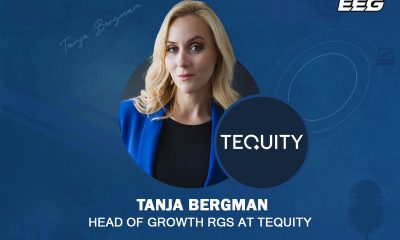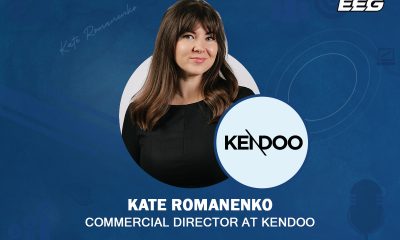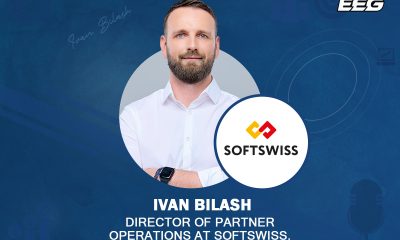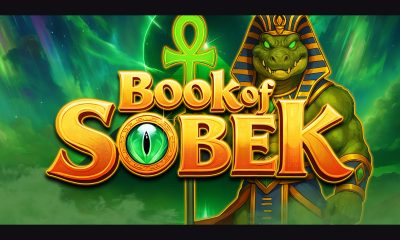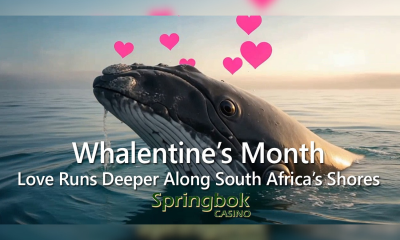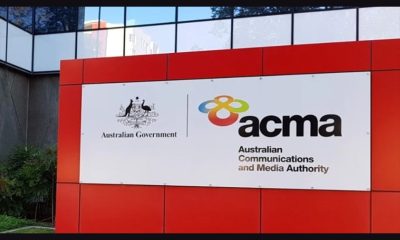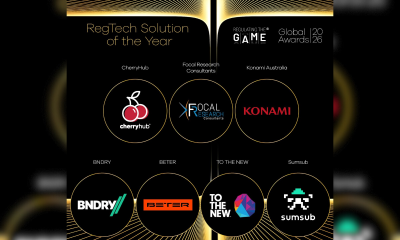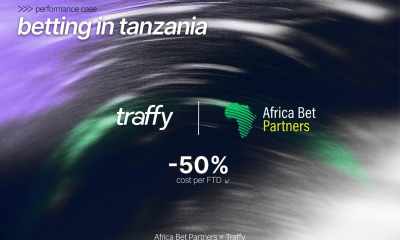Interviews
XANADA’S BREAKTHROUGH YEAR AND THE ROAD AHEAD
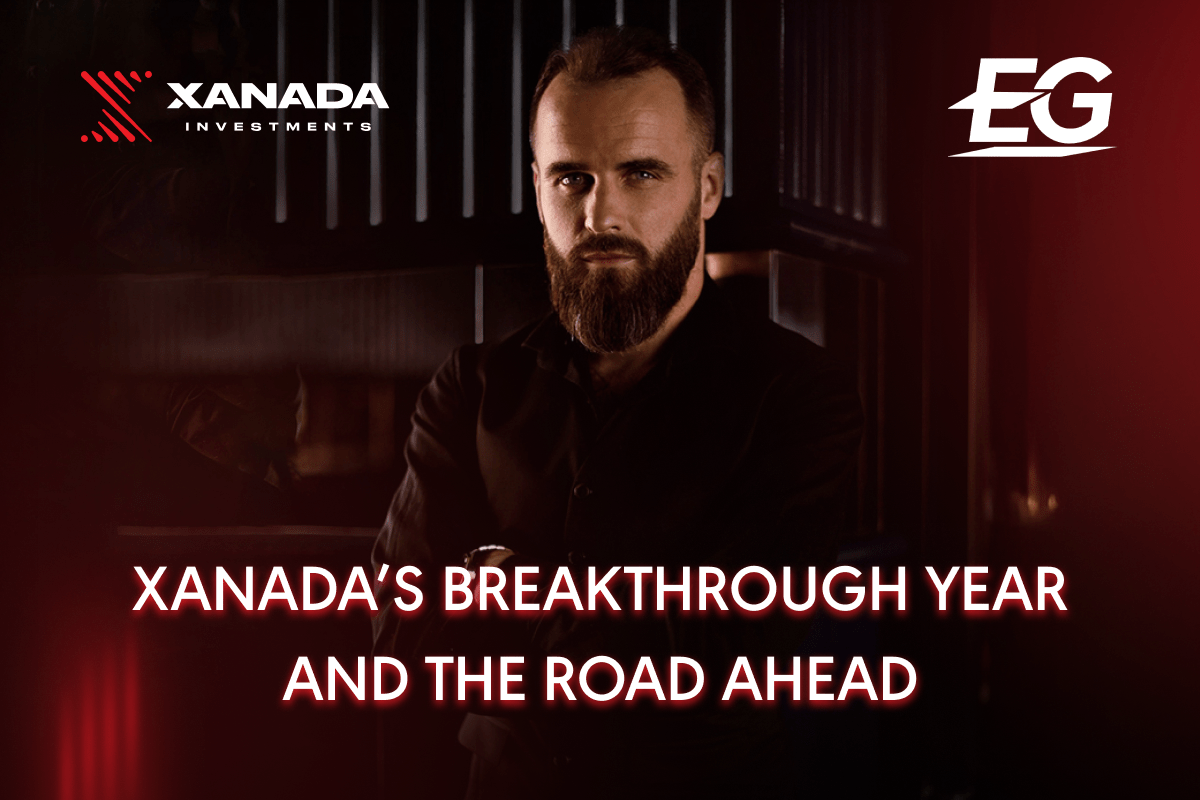
2024 was your debut year with Xanada Investments. Looking back, what are the key highlights or moments that defined this first year for the fund?
2024 marked the beginning of an ambitious journey for Xanada Investments – a year where we laid a strong foundation for what’s to come. While the real work lies ahead, I can confidently say that we’ve set the stage.
The highlight was undoubtedly our successful allocation of $9 million across 8 impactful projects, selected from a pool of 350 submissions. Each startup impressed us with its scalability, strong team, and ability to deliver real results – qualities we value as the cornerstone of every successful partnership.
Another defining moment was the debut of the Xanada Startup Contest. It was a platform not just to identify potential investments. We actively participated in major industry events like iGB LaunchPad, SiGMA Pitch, and SBC First Pitch – events we couldn’t pass up. As a newcomer, we not only made our presence known but also earned recognition, securing awards and forging valuable connections.
Beyond numbers, the year was about building a community – a network of partners, founders, and investors who believe in driving transformative change.This is just the start of an exciting journey.
What inspired you to launch the Xanada Startup Contest, and how would you evaluate its impact in 2024?
It’s no secret that many startups are in need of investment. But the real question is, do they have the expertise, networks, and strategic foundation to actually make that investment work? This was one of the key insights that led us to create the Xanada Startup Contest. It wasn’t about running a competition with just a single winner; it was about creating a transparent process: a live showcase of how startups grow, pivot, and adapt in real-time.
Too often, what happens behind the scenes stays hidden, but we wanted to change that. The results speak for themselves. With 250 applications pouring in, representing a diverse range of ideas from around the globe, we witnessed firsthand the depth of creativity within the startup ecosystem. And through a rigorous selection process, we identified and elevated one standout winner – FTDx. The real impact of the contest lies in its ability to challenge founders to think bigger and execute better. That’s what makes the Xanada Startup Contest more than just a competition.
Many associate investment funds with slow decision-making processes. Yet Xanada Investments has been incredibly dynamic. What’s your secret to keeping up this pace in the previous year?
The secret lies in creating frameworks that balance precision with speed. We’ve developed rigorous evaluation processes that combine both quantitative and qualitative metrics to assess startups effectively without losing momentum.
But beyond frameworks, it’s about having a team with the right mindset. At Xanada Investments, we embrace adaptability and foster collaboration. Our team operates with the energy and agility of a startup, and that allows us to move quickly, even in an industry often seen as traditional and slow.
You partnered with 8 startups this year. What caught your attention in these projects, and what’s your strategy for picking the “perfect match” for Xanada Investments?
At Xanada Investments, our focus has always been on backing projects that bring something unique to the table. What sets us apart is not just what we look for, but how we see it. For us, it starts with the people – the founders. Their vision, resilience, and ability to execute are what capture our attention first. These are individuals who truly understand their markets, are ready to pivot when challenges arise, and have the determination to turn ideas into reality.
Among the projects we’ve backed this year, Promofy is revolutionizing user retention with AI-driven gamification, delivering personalized engagement at scale. Gamixter is helping operators optimize player interaction with real-time engagement tools, creating more immersive gaming experiences. Bettorify, focused on the rapidly growing Asian market, provides localized white-label and turnkey solutions, enabling operators to navigate regional complexities with ease.
These are just a few examples of the startups we support. Each project we invest in plays a role in building a stronger, more dynamic iGaming landscape. And we’re only getting started.
With 11 award nominations and 2 wins already, success is clearly part of Xanada’s DNA. But how do you define success beyond the numbers?
For us, success isn’t measured by the number of awards. Of course, we are talking about financial returns, about impact, although we deeply appreciate the recognition – it’s always rewarding to see our efforts acknowledged on such a level. These awards are proof that we’re on the right track, but they are only part of the story.
But are we helping startups achieve their goals? Are we setting new benchmarks in the iGaming industry? The true measure of success lies in the growth of the projects we support and the people behind them. When we see startups flourishing, scaling their businesses, and turning ideas into impactful solutions, that’s the ultimate reward.
Another key indicator of success for us is the relationships we cultivate. When founders and partners come to see Xanada Investments not as just an investor but as a trusted collaborator and ally, we know we’re doing something right. These connections, built on trust and mutual ambition, are the foundation of our ecosystem.
What does the future hold for Xanada Investments in 2025? Are there any ambitious goals or projects you can share with us?
2025 is about scaling powerful results. We plan to invest in 10–12 new startups, focusing on projects with strong business fundamentals, exceptional teams, and clear strategies for growth. Our approach prioritizes opportunities with a targeted IRR of 25–40% and a MOIC of 3–5x, ensuring every investment aligns with our commitment to sustainable, measurable returns.
We’re taking the Xanada Startup Contest to the next level this year. Xanada Investments is expanding its reach and updating the evaluation process to attract a wider range of participants from diverse industries and markets. To ensure the best selection, we’re involving not only our team but also top industry experts to evaluate the entries. This will help us find and support the most promising ideas out there. With more transparency and live engagement, you’ll have the chance to see and hear these groundbreaking ideas in action. Stay tuned, big things are on the horizon!
Xanada Investments is also focused on strengthening our internal capabilities. A key priority for 2025 is to grow our team by bringing in top talent, including a dedicated analyst, to refine our data-driven approach to startup evaluation. We want to be a partner that equips startups with the tools, mentorship, and connections they need to succeed. The road ahead is ambitious, but we’re ready to seize the opportunities 2025 has in store.
The post XANADA’S BREAKTHROUGH YEAR AND THE ROAD AHEAD appeared first on European Gaming Industry News.
Interviews
Scaling innovation through the launch of Tequity Publishing
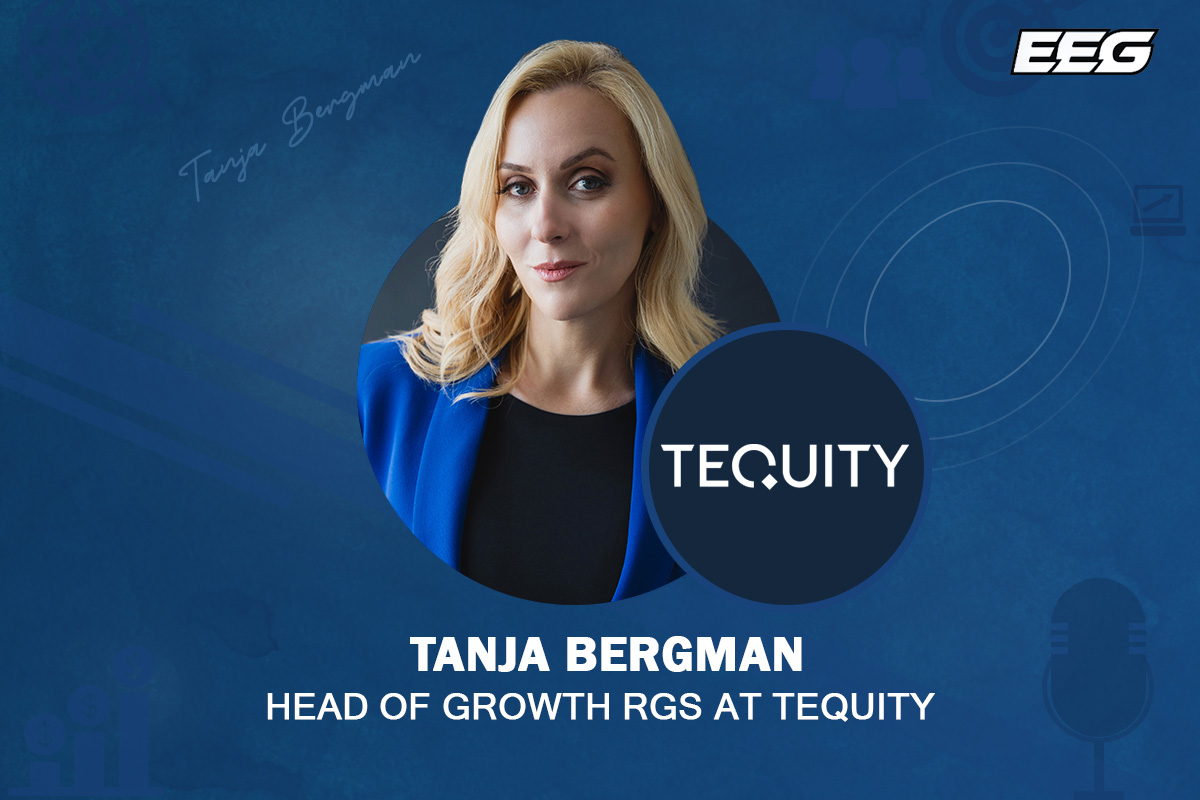
Following the announcement of its new publishing vertical and the successful debut of Royal Drop, we sat down with Tanja Bergman, Head of Growth RGS at Tequity, to discuss how this new arm is set to dismantle technical barriers for ambitious studios and why scalability is the new frontier for the ‘Burst Games’ genre.
Tequity has just officially launched its Publishing vertical. What was the primary catalyst behind this move?
The industry is currently in a fascinating place. There is no shortage of creative talent among studios, but there is a massive technical bottleneck. We have seen so many ambitious studios with incredible concepts – especially those moving beyond traditional slots – who have been getting bogged down in terms of getting those concepts out into the marketplace.
The catalyst for Tequity Publishing was simple. We wanted to break down those technical barriers. By handling the infrastructure, distribution, and compliance frameworks, we allow studios to do what they do best, which is build outstanding games. It’s about speed-to-market without compromising on the quality or the vision of their content.
The launch coincides with the release of Royal Drop. How does this game, and the partnership with Mirror Image Gaming and The Fortune Engine, showcase what Tequity Publishing is all about?
Royal Drop is the perfect proof of concept. It’s a collaboration that highlights three important pillars of modern game delivery. You have Mirror Image Gaming bringing that fresh, video-game-influenced Burst Games energy, The Fortune Engine provide the math tools and templates, and Tequity Publishing offers the global scale and distribution pathway.

It shows that when you remove operational friction, you can create a game-first experience that appeals to a new generation of players who want something more interactive than a standard 5×3 reel.
Tequity Publishing offers two models: RGSaaS and RGS-to-RGS. Can you walk us through the strategic benefits of each?
Flexibility is key, because no two studios are at the same stage of their journey. The RGSaaS model is our full-service offering. It’s designed for studios that want to focus 100% on the creative side. We provide the entire infrastructure and publishing framework and it is essentially a business-in-a-box for game creators.
The RGS-to-RGS model is a more streamlined, tech-first approach for studios that already have their own RGS but lack the distribution muscle. It allows them to plug into our growing operator and aggregator network instantly. Both models are built on the same philosophy: helping studios reach parts of the market they otherwise couldn’t access on their own.
You mentioned reaching new generations of players. How does this vertical specifically empower studios to innovate in ways they couldn’t before?
When a studio is concerned about how they are going to integrate with a multitude of different operators or how to navigate complex jurisdictional requirements, they tend to play it safe. They stick to what they know.
By taking that weight off their shoulders, we give them the opportunity to be brave. Studios like Mirror Image Gaming are pushing the boundaries of modern iGaming, taking influences from the video game world. This is exactly what the new generation of players is looking for. We provide the scalability so that these niche, innovative ideas can achieve mass-market impact.
It’s been a busy period for Tequity, following the success of your Originals series and the iBankroll partnership. How does the Publishing vertical fit into the broader Tequity roadmap for 2026?
It’s all part of becoming the ultimate technology partner for the gaming industry. Whether it’s our streamer-friendly Originals or our Bankroll-as-a-Service offering, the goal is to provide scalable, customisable solutions. Tequity Publishing is the natural evolution of that mission. We aren’t only providing the tools anymore, but also the pathway to the player. Looking ahead, you can expect a series of further launches through our three-way collaborations. We’re proving that the barrier to entry for innovation has never been lower.
Finally, for studios looking to scale quickly, what is your main message to them?
Don’t let technical noise drown out your creative signal. If you have a game concept that breaks the mould, you shouldn’t have to spend years building the distribution architecture to get it seen. That’s what we’re here for. We want to help you launch at a speed and scale that matches your ambition, so that you can make a significant splash in the industry.
The post Scaling innovation through the launch of Tequity Publishing appeared first on Eastern European Gaming | Global iGaming & Tech Intelligence Hub.
BetMGM
Breaking America with BetMGM
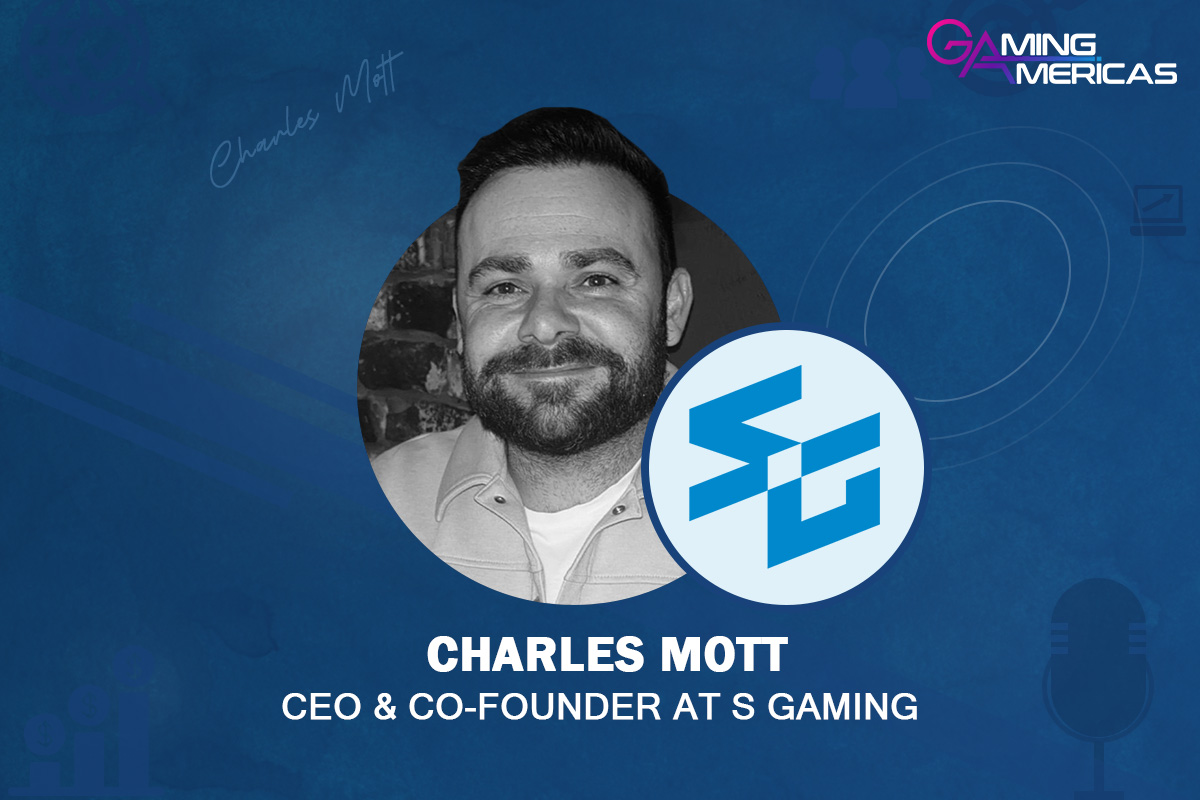
We speak to Charles Mott, CEO & Co-Founder at S Gaming, about the provider’s move into the US market with BetMGM and why more casual gameplay hits the mark with players stateside
Congratulations on your deal with BetMGM in the USA. Why is this such a milestone market launch for S Gaming?
The deal with BetMGM marks our hotly-anticipated launch in the US market, and sees our games go live to players in core regulated states such as New Jersey, Pennsylvania, West Virginia and Michigan. We see huge potential for our content in the North American market, and to make our debut with such a high-calibre operator is a testament to this. The US is still just finding its feet as a regulated online casino market, and our games, with their focus on sustainability and high entertainment, are the perfect fit for audiences who are used to land-based slots and are increasingly moving online. They are simple, easy to understand and play, and ultimately deliver tons of fun over longer playing sessions – just like the slot machines found on the floors of casinos in Las Vegas and beyond.
Just how important was it to go live with a tier-one operator like BetMGM? And how will the deal allow you to quickly build momentum in the US?
It’s mission critical. Going live with BetMGM allows us to build immediate trust with players, tap into a large and loyal playerbase, and simultaneously enter multiple regulated iCasino states at the same time. Now that we are up and running with BetMGM, we are turning our attention to striking partnerships with other operators active in the market. It’s pretty much the same blueprint that we’ve followed in our home market of the UK where we are now live with all but a handful of brands – something we have been able to achieve in a little over two years. We know the US is a slightly different market, but we are confident in our approach to game development and, as we gather more data on how US players interact with our games, will use this feedback loop to guide our product roadmap going forwards so that each title is better than the last and more suited to the preferences of US players.
You mentioned that your games are aimed at more casual players. How does this align with the preferences of US consumers?
If you walk onto the gaming floor of any Las Vegas casino, you’ll see row after row of slot machines. Increasingly, these machines are designed to keep players entertained for longer through gripping gameplay and regular wins. A lot of online slot content delivers high risk/high reward gameplay, where players can quickly clear through their balance as they hunt down big wins – wins that don’t land all that often. In a market where operators care deeply about retention and lifetime value, games that keep players spinning for longer really matter. Our approach to producing sustainable, fun games for players in the UK and Europe has allowed us to not only stand out but to engage players at scale, and we are confident players in the US, especially those who enjoy land-based slotting, will also be drawn to them at scale.
Has launching in the US been a major undertaking for S Gaming, or did it prove to be plain sailing for the most part?
When planning our move into the US market we identified two routes. We have our own remote game server, so we could build on that, secure licences in each state we wanted to enter, and then deploy our content directly with operators. The other option would be to work with a third-party RGS provider that already has the licences and integrations we needed. While the first option might sound like the best, in reality, especially for a smaller studio, the cost of and resources required for securing individual state licences can be prohibitive. So instead, we joined forces with Gaming Realms as they have the cutting-edge RGS and licences (in both the US and Europe) we were looking for. This means we simply need to build a US version of each game on the Gaming Realms RGS and can then deploy content with the wide range of operator partners they are connected with in regulated iCasino states across the US.
Tell us more about the initial run of games you’ve launched with BetMGM.
We’ve launched the partnership with Barnyard Bash Chicken Chase which will be followed by Triple 7 Jackpot in February and Cat and Mouse Collect in March – with one new game a month to follow as we build out our US portfolio. If players were to try just one of our games, it would be Barnyard Bash Chicken Chase. It gets players clucking as they spin the reels, collect Eggs and add them to the growing Nest – the more eggs collected, the bigger the Nest Egg becomes. Not only that, Eggs can randomly activate the matching colour-coded Nest Egg and award entry to the Chicken Trail feature, drop Egg-stra Free Spins or lay an Instant Prize.
But once they’ve tried it, they’ll definitely want to take Triple 7 Jackpot for a spin. This classic slot is dripping in neon action – the Triple 7 feature is always on screen but is locked until a spin lands three Bonus 777 symbols. This unlocks the feature with on spin awarded, giving players a shot at the 500x Jackpot prize. Free Spins are also up for grabs with seven Free Games awarded when three Scatters land in the base game.
Finally, Cat and Mouse Collect is a playful, feature-rich slot built around a simple but engaging Collect mechanic. Players pin the reels, collect up the cheeses and feed the hungry mice until they’re fit to burst. Green plates will serve up an instant prize, Blue will start the wild and wacky Cheese Chase and Red dishes out some feisty Free Spins. With regular feature triggers and plenty of on-reel interaction, it’s designed to keep players engaged from spin to spin without relying on extreme volatility.
What does success in the US look like for S Gaming over the next 12-18 months?
Success for us isn’t about one big hit, it’s about becoming a trusted, widely-distributed supplier in regulated iCasino states. Over the next year we want to significantly expand beyond BetMGM, roll out a steady pipeline of US-optimised titles and build the kind of player data and
operator relationships that let us grow sustainably. If players in New Jersey, Pennsylvania and Michigan are regularly choosing S Gaming titles as part of their core rotation, then we’ll know we’re really breaking into the market.
The post Breaking America with BetMGM appeared first on Americas iGaming & Sports Betting News.
3 Fortune Trees.
Kendoo interview: Can stability be the new innovation?
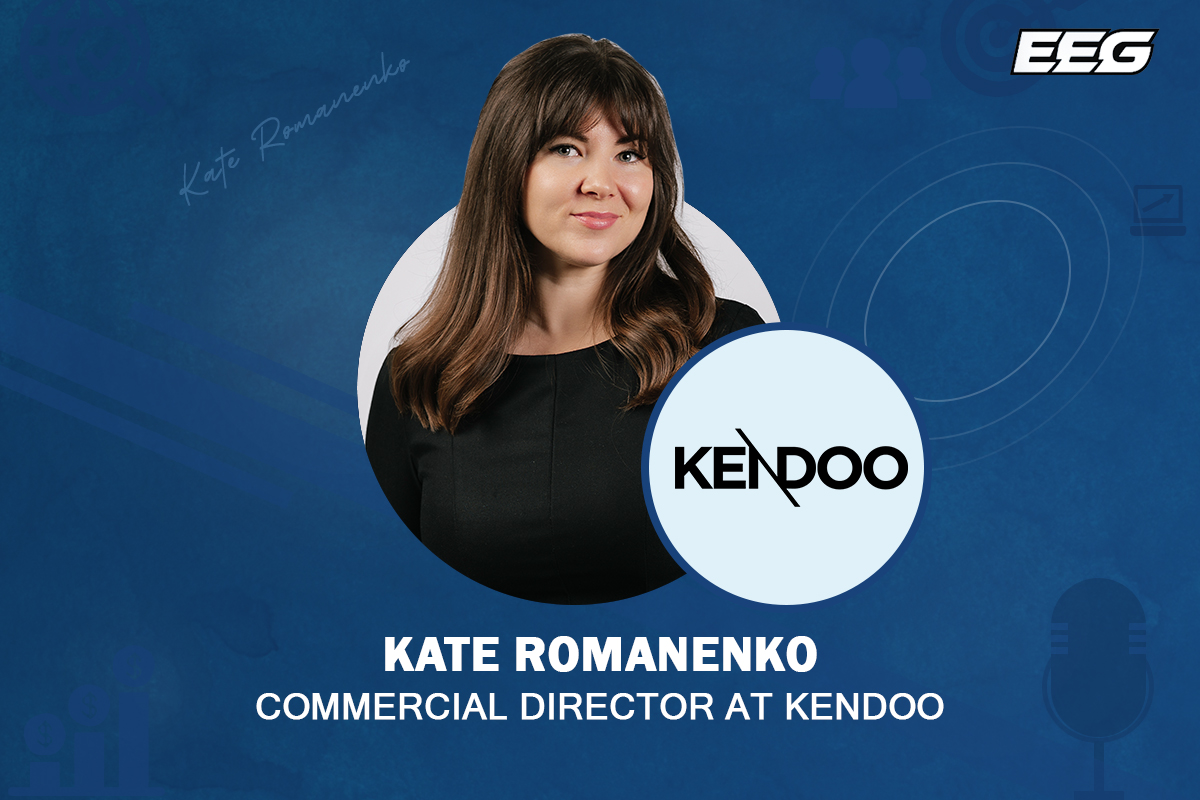
What innovation consists of within the slots industry is often debated. While there are often calls for more groundbreaking features to be introduced, the reality is that the progression of trusted and popular concepts is what drives the industry forward with new releases.
We caught up with the Kendoo’s Commercial Director, Kate Romanenko, to understand more on how long-term retention is often underpinned by controlled evolution of proven concepts, as shown in the company’s success over the past year.
In an industry driven by novelty, why do you think long-term consistency is becoming just as valuable as innovation?
In the competitive iGaming market, everyone is obsessed with “what’s next,” long-term consistency has become a signal of trust. Operators are increasingly cautious: they want games that perform predictably over time, not just those who grow only on launch. Controlled evolution, like we showed with 3 Pots and 4 Pots games, such as 3 Fortune Trees, 3 Gates of Pyramid, 4 Egypt Scarabs etc., proves that you can refresh mechanics and visuals without breaking what already works. Innovation still matters, but when it’s backed by performance data and retention, it becomes scalable, sustainable value rather than short-lived hype.
How does Kendoo ensure technical and gameplay stability across its growing portfolio, especially as it scales into new markets?
At Kendoo, we build on a select set of well-tested core mechanics, evolving them thoughtfully rather than introducing unproven systems. Each game reflects our research, experience, and deep understanding of player needs. This approach lets us expand into new markets without compromising reliability, delivering operators consistent performance and players a smooth, familiar experience they can trust.
What role does reliability play in building strong partnerships with aggregators and platforms?
Reliability is the foundation of trust with aggregators and platforms. When integrations are stable, launches are predictable, and games perform consistently, partners can scale with confidence. For Kendoo, reliability reduces operational friction on their side, fewer incidents, faster rollouts, and clearer performance expectations. Over time, this turns a supplier relationship into a long-term partnership, where growth is planned together rather than driven by constant risk around new releases.
Do you think players are beginning to value dependable, well-balanced games over constant experimentation?
Players enjoy novelty, but they return to games that feel fair, familiar, and well-balanced. Constant experimentation can create friction, while dependable mechanics build confidence and habit. That’s why evolved formats with proven performance tend to retain better: players know what to expect, and that reliability turns curiosity into long-term engagement. For example, taking mechanics like Pots, which originated in land-based casinos, and successfully adapting them for online play.
Can you point to a Kendoo title that’s become a steady performer over time and what that tells you about what players really value?
A clear example is 3 Fortune Trees. Since launch, it has consistently driven strong retention and engagement across markets, with an average of 500 bets per player, which is excellent. The game demonstrates that players value Pots mechanics and reliable, well-balanced gameplay over flashy, one-off features. Its engaging mechanics, popular theme, and premium art and animation all come together to create a game that players love to play.
The post Kendoo interview: Can stability be the new innovation? appeared first on Eastern European Gaming | Global iGaming & Tech Intelligence Hub.
-

 Book of Sobek5 days ago
Book of Sobek5 days agoHölle Games Releases Book of Sobek
-

 Africa5 days ago
Africa5 days agoDive Into a Different Kind of Love This February with Springbok Casino’s ‘Whalentines Month’ and Claim 25 Free Spins
-

 ACMA5 days ago
ACMA5 days agoACMA: Six Wagering Providers Breach Gambling Self-Exclusion Rules
-

 Australia5 days ago
Australia5 days agoFinalists Announced for Inaugural Regulating the Game Global Awards Following Strong Global Engagement
-

 Danske Spil5 days ago
Danske Spil5 days agoS Gaming lands in Denmark with Danske Spil
-

 Latest News5 days ago
Latest News5 days agoThunderkick Unveils Pan’s Arcadia, a Utopian Wilderness
-

 Alex Baliukonis Game Producer at BGaming5 days ago
Alex Baliukonis Game Producer at BGaming5 days agoExperience Olympic Excitement in BGaming’s Winter Trophy Hold & Win
-

 Latest News4 days ago
Latest News4 days agoHow Traffy Cut FTD Cost in Half and Scaled Betting in Tanzania for Africa Bet Partners via Moloco Ads



